6 career defining records of Black Sabbath's Bill Ward
Metal drumming innovator picks his finest
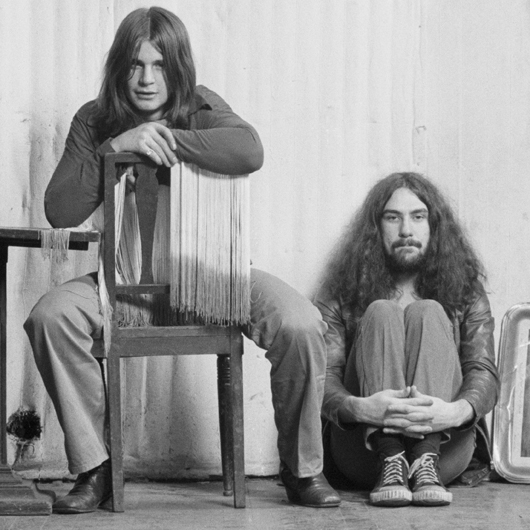
Bill Ward (right) with Ozzy Osbourne
Bill Ward invented metal drumming, levelling crowds in arenas worldwide with Black Sabbath. Here he discusses the six landmark records which have most defined his career, telling Rhythm Magazine why they mattered so much along the way.
First up: Brummie longhairs inadvertently inventing heavy metal
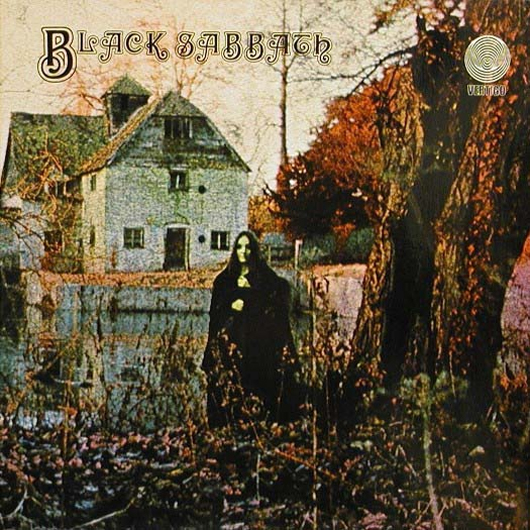
Black Sabbath (1970)
Brummie longhairs inadvertently invent heavy metal with guitarist Tony Iommi’s downtuned guitar, bassist Geezer Butler’s satanic lyrics, Ozzy Osbourne’s demonic wails and the power drums of Mr B Ward…
Bill Ward says:
“The first one has to be Black Sabbath! What I like about it is the swing time and the very subtle jazz qualities, and I also like the sound of the cymbals. It showed off the band’s live technique.”
“The recording setup was quite simple - we recorded it in three days! - but we were a band with a full understanding of the frequency spectrum. We were already mastering the highs and the lows live, and we were listening to each other: that really shows up on the first LP."
“In parts, it’s really smooth and tight. We always used a swing feel, right up to the last tour: there were all sorts of tricks that I was getting up to. We were so hot. Everyone listened to jazz drummers back then, we were all doing it. Gene Krupa was the main one: he was a real dyed-in-the-wool influence for me.”
-----------------------------------------------
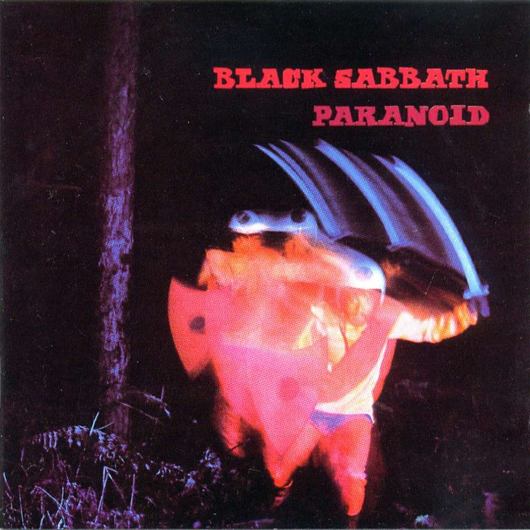
Paranoid (1970)
Recording not one but two classic albums in 1970, Sabbath were on a roll. With Ward driving War Pigs with a hi-hat and laying the doom down on Iron Man, Paranoid was destined for all-time classic status.
Bill Ward says:
“I like Paranoid because we were touring the world at that time - and you can hear the real birth of the band. When Geezer Butler started writing songs like Iron Man, it separated us from everything else that was going on. Everyone was like, ‘What’s this?’ - and it’s very important to look at that, because that was the difference between us and some of the other louder bands at the time.”
“It was the lyrical content as well as the music that made us different, and this album was a pinnacle for us, with songs like Hand Of Doom. I loved how we all contributed our parts. Paranoid was the jumping-off point.”
“How did I come up with the hi-hat in War Pigs? That was the swing thing again - I’d done exactly the same thing on Wicked World, which appeared on the first album. It was all Buddy Rich!”
-----------------------------------------------
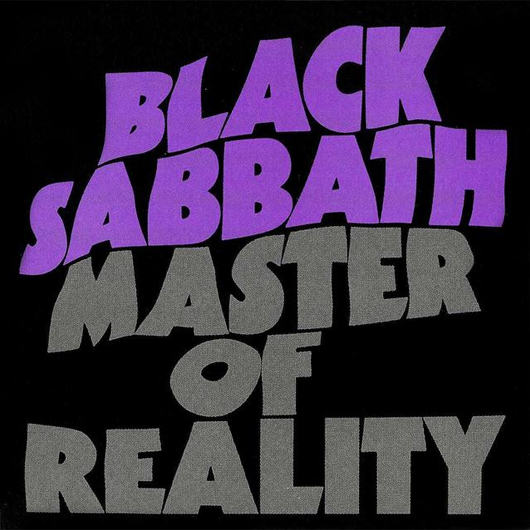
Master Of Reality (1971)
The experimentation continued (and the heaviness increased) on Master Of Reality, with odes to spliffs (Sweet Leaf) and Satan (Lord Of This World) making this seminal LP Black Sabbath’s most diverse yet.
Bill Ward says:
“This is the most enduring Black Sabbath album for me. The production is extremely good: Tony was trying a lot of new things, and I’m very pleased with the drumming. I was pulling off a lot of new things that I’d been trying to do for three years, such as my double bass work in Children Of The Grave. There’s a lot of different bass drum movement, and I play the timbale with my left hand on that song too.”
“I was also experimenting more with percussion overdubs. ‘Into The Void’ was almost the first song that sounded like grunge, or the modern metal of today, with the way I was cutting Tony’s guitar in with my hi-hats, and my single-stroke rolls.”
“The songs sound amazing live: they’re an absolute blast to play. I have a great time playing drums with Black Sabbath, and always have done.”
-----------------------------------------------
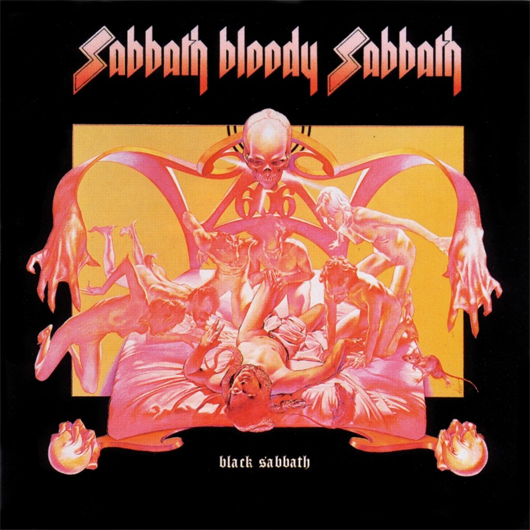
Sabbath Bloody Sabbath (1973)
At the peak of their powers, Ward et al delivered their most ambitious work to date, despite a veritable blizzard of cocaine.
Bill Ward says:
“By the time we recorded this LP, we’d done multiple tours across the world and we were experienced musicians. We’d matured, although we’d been digesting large amounts of Peruvian marching powder for a while and I’d reached a point where I was addicted.”
“The drum tracks might have been more technically precise if I hadn’t been using drugs, but I look back and I think I did OK: the title track is great to play live. There’s a bit at the end with a nice percussion thing going on. By this time we were allowing more things to come into the music - some strings, some brass, we were moving towards different places. Tony even played a jazz part.”
“We’ve played with lots of modern bands - Slayer, In Flames, The Haunted, Slipknot, Marilyn Manson - and these songs fit right in. They’re almost ageless.”
-----------------------------------------------
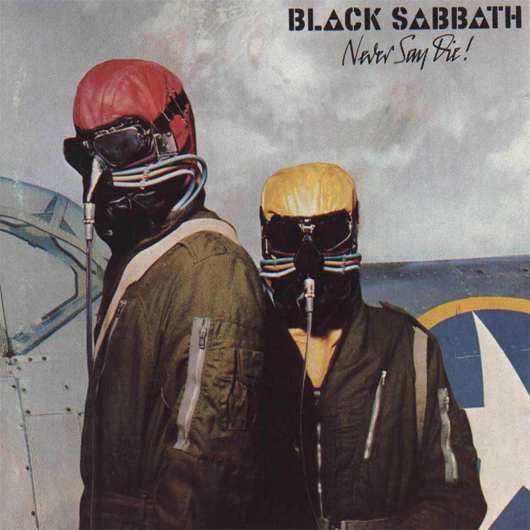
Never Say Die (1978)
Struggling to stay afloat through addiction and the erratic behaviour of Ozzy Osbourne (booted out of the band soon afterwards), Sabbath released this underrated LP. Ronnie James Dio was waiting in the wings.
Bill Ward says:
“Never Say Die was the most difficult Sabbath LP. The band was tired, and we were starting to fall apart. It was a horrible time, but I like what I did on the album. There’s a real nice drum sound on Hard Road and the title track has some good double bass drums on it.”
“There are a lot of drum parts on that record that I’m pleased with actually, but I was in the grip of a progressive illness, and I had to drink every day: I had no choice. Still, the drums came through, regardless of my condition.”
“We made a very good album, but our circumstances as a band and individuals were beginning to change. It’s easy to do good things when everything’s going great, but it’s hard to make something good when everything is falling to pieces – and that shows the victory and the power of this band.”
-----------------------------------------------
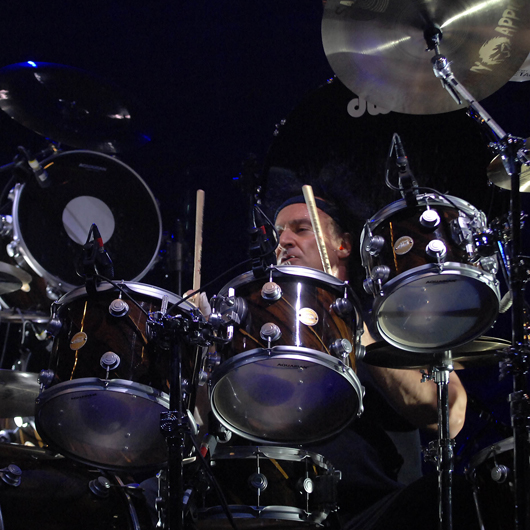
Ward One: Along The Way (1990)
Five years sober and out of Sabbath, Ward released his first solo album, aided and abetted by several well-known musicians.
Bill Ward says:
“Along The Way was a big production for me, because I was wearing the artist’s hat and the writer’s hat as well as the producer’s hat, and co-ordinating a lot of musicians. That’s not an easy thing to do. Musicians have a whole lot of personality, as we all know, and I had to learn to be extremely patient.”
The biggest thing for me was being bold enough to get the very best out of them. We achieved a lot because they were all so flexible. Jack Bruce could do anything, and he went where I wanted him to go without any complaints or rock star ego whatsoever.”
“The album made me stronger as a musician and a producer.”